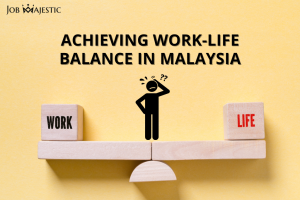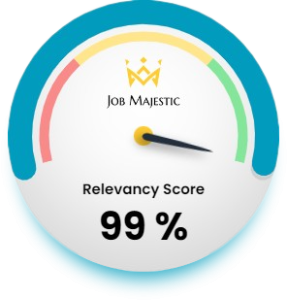Preliminary Interview 101
Did you know that most jobs would somewhat have a preliminary session before the actual interview with the hiring manager(s)? It’s called a preliminary interview, and it can be conducted via a phone call, video conferencing, as well as physical hiring event.
The purpose of a preliminary interview is for recruiters and employers to filter out irrelevant applicants who could be wasting everybody’s precious time. It is also crucial to quickly gauge if you are suitable for the role and the company in terms of skills, interests, and personality.
Just applied for the best jobs in Malaysia and wondering what to prepare next? Here are some of our tips to prepare you for the upcoming preliminary interviews.
How to Succeed in Preliminary Interviews
1. Understand The Company
Conducting preliminary interviews is a strategic move by employers to screen out those who are not serious/qualified for the job application.
Researching the job scope and company background can help you to answer most if not all of the interview questions in this session. The more knowledge you have about the company, the more comfortable and confident you’ll be when speaking with the interviewer.
This is because you’ll be able to customise any interview questions to better suit the specific job role and company – making sure that every answer fulfils the interviewer’s expectations.
2. Sell Yourself
Most preliminary interviews are conducted in a short period of time, hence it’s crucial for you to capture the hearts of your interviewers.
During the session, the goal is to focus on highlighting your relevant qualifications, skills, traits, history, experience, and interests in the role to position yourself as the best candidate for the position.
In summary, you should create an elevator pitch to sell the interviewer the value you can bring to the company.
3. Identify & Communicate Your Intentions
An important piece of information that interviewers would like to extract from you would be your motivation to switch companies, roles, or even careers.
Before attending preliminary interviews, you should be clear with yourself on why you’re looking for a new job – what’s your motivation? What are you hoping to get out of the opportunity the new job presents?
Refrain from mentioning “escaping” from your previous job. Instead, mention how the new role would be able to propel you into a better place in your career ladder – whether it’s the environment, skillsets to be learned, exposure, network, etc.
4. Be Aware of Your Tonality
The truth is that preliminary interviews are usually fast-paced, and rapid-fire. Thus, it could be easy for applicants to feel nervous and grasp for air. Here are some of our tips to help you keep the preliminary interview enjoyable.
- Don’t forget to breathe
- Focus on speaking clearly – interviewers can wait for a little
- Don’t take the interview too lightly – you are tested in every second of the session
- Keep a positive tone – smiling more helps
- Always show that you are interested in the role and company
- Listen carefully to their questions – pause a little to digest them if you need to
- Be aware of their tone as well – conclude your answer if you feel that you are taking too long
If you are able to stick to these best practices, we are confident that your preliminary interview would feel less dreadful than it looks.
5. Familiarise Yourself With The Usual Questions
Finally, you need to understand that most if not all preliminary interviews would contain similar questions to quickly identify if you’re the right fit for the applied role.
Some of the classic preliminary interview questions include:
- How did you learn about the position?
- What do you know about the company?
- Why are you interested in this position?
- Why are you looking for a new job?
- Why are you interested in working with us?
- What are your relevant skills?
- What is your working experience like?
- What value can you bring to the table?
- What is your salary expectation?
- What is your biggest strength and weakness?
Practice makes perfect. Understanding these questions is not sufficient to ace them – you’ll need to devise the perfect answer format, customise them based on the applied role/company, and most importantly, practice.
Final Remarks
One final piece of advice – Always follow up with the hiring manager/recruiter sometime after your preliminary interview.
You may send a beautifully and professionally written email or text message to thank them for spending their time reviewing your application and speaking with you.
This is a good opportunity to re-emphasise your motivation and value proposition for the role, as well as quickly address any items you’d like to elaborate on further. Plus, you’ll get to reinforce your first impression and stand out from the crowd by doing so.
If you need more tips on landing your dream job in Malaysia, don’t hesitate to visit our Job Majestic Blog today!
![]()







